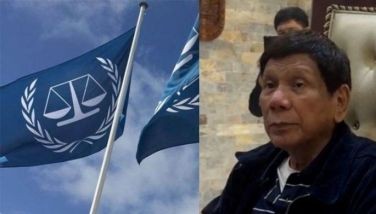Unloved

In the end, Bashar al-Assad slithered onto a Russian plane and found sanctuary in Moscow. One of the most brutal dictatorships humanity had ever known collapsed spectacularly in the face of a well-organized uprising. No one mourns the regime’s end.
The 54-year Assad dynasty ended Sunday morning with the Syrian Army dissembling and rebel forces marching into Damascus unopposed. By Monday, victorious rebels still had to break through the lower three levels of the notorious Sednaya Prison where thousands of prisoners remained trapped and left to die.
Bashar inherited power from his father Hafez in 2000 after his elder brother and designated successor met an untimely death. Hafez took power in 1970 and was installed president in 1971.
For over half a century, the father and the son ruled Syria with unbridled brutality. Over a decade ago, Bashar used nerve gas on his own population, killing children huddled in basements. He had protestors shot at point blank and thrown into rivers. Whole cities were leveled through the use of “barrel bombs” that killed indiscriminately. Both Hafez and Bashar ruled with contempt for their people.
Bashar’s exceeding brutality forced millions of Syrians to flee abroad. Many of them are now poised to return home to a society that, hopefully, will have real institutions and the rule of law promised by the emergent leaders of the anti-Assad forces. Only these will check against the return of the unrestrained cruelty of the Assad regime.
Bashar was as indolent as he was cruel. He never put effort at winning over his own people. He relied on naked brutality to crush every hint of opposition to his rule. He relied on his friends in the Hezbollah to do his murdering for him. He relied on Russian firepower to bomb ancient cities that rose against him. He relied on Iran to keep his troops supplied.
For years, Syria has been fragmented. The northeast was controlled by Kurdish forces. Large swathes of territory were occupied by Turkish troops. Anti-Assad groups, including the ISIS and remnants of Al Qaeda, freely organized and trained their forces in safe havens. Both the US near the border with Jordan and Russia on the Mediterranean coast maintained sprawling military bases. Bashar did nothing to reintegrate his country and reassert control.
Meanwhile, the dozens of factions and ideological wings opposed to the Assad dictatorship formed a well-functioning coalition, including joint command of militia groups. They were well prepared for precisely the blitzkrieg we saw the past week, where all the major cities fell into rebel hands in a number of days.
Meanwhile, the Assad regime’s main allies were weakened for separate reasons. Russia was mired in its war against Ukraine, therefore less and less able to provide the firepower Bashar relied on. The Hezbollah has been degraded by Israeli offensives the past few months and had no forces to divert to save the beleaguered regime in Syria. Iran was consumed by its on-again, off-again military confrontation with Israel.
When the uprising happened, there was no one to help Bashar. His troops simply chucked their uniforms, abandoned their arms and fled as the rebels began a strategic advance.
Even the US underestimated the strength of the rebel forces and the brittleness of the Assad regime. As the rebels marched into Damascus, Donald Trump tweeted that the US should not get involved in the conflict. That was an inane statement. The US, by abdication, had lost all ability to shape outcomes in Syria.
The biggest losers in the spectacular turn of events in Syria are obviously Russia and Iran. Russia lost its biggest client state in the Middle East and will soon lose access to the only Mediterranean ports she could use. Iran has lost the ability to continue building proxy militias on Syrian soil.
Turkey is obviously a big winner. It now enjoys the most influential voice in shaping how the post-Assad situation evolves in Syria. Ankara can actually try to annex Syrian land next to its border, mainly as a buffer zone against the increasingly influential Kurds. Turkey faces an armed challenge from its own minority Kurds.
The US has long supported the Kurds through the Syrian Democratic Forces. Regardless of Trump’s instinctive isolationism, Washington cannot abandon the staunchly pro-US Kurdish minorities in both Iraq and Syria without risking a revival of the ISIS.
Early Monday saw the US Air Force carpet bombing ISIS positions in Iraq. Israeli Prime Minister Netanyahu ordered his troops to occupy the buffer zone beyond the Golan Heights that the country had earlier annexed. The Lebanese Army was moving its troops to the border with Syria, controlling border crossings.
It seems likely, as a new government takes shape after the collapse of the Assad regime, that Syria is bound to lose territory. The Turkish army has effectively annexed land adjacent to its borders. The Kurds will become more assertive, likely demanding more autonomy for Kurdistan.
Syria, the crossroads of trade for 11,000 years, is a mad patchwork of ethnicities and religious affiliation. The Assad dictatorship has its strongest base among the minority Alawite communities. There is a significant Christian population in the country. Then there are Shiites and Sunnis. There are jihadist movements and more secular groups participating in the victorious uprising.
On top of all these, the great powers will try to redefine their stakes in this watershed moment.
- Latest
- Trending


























